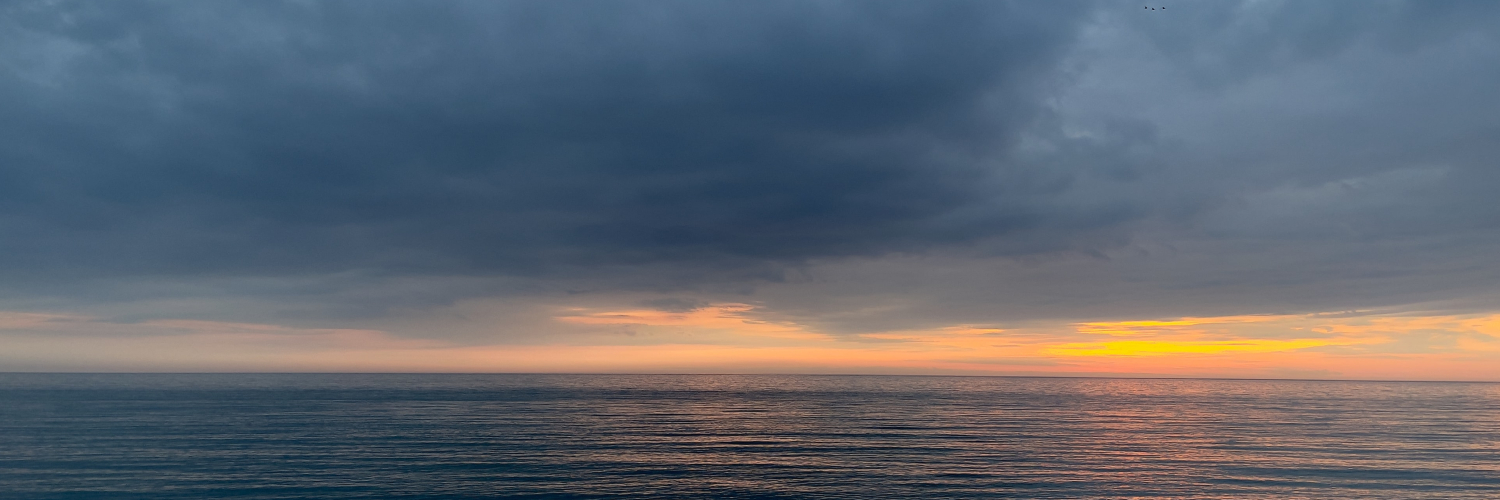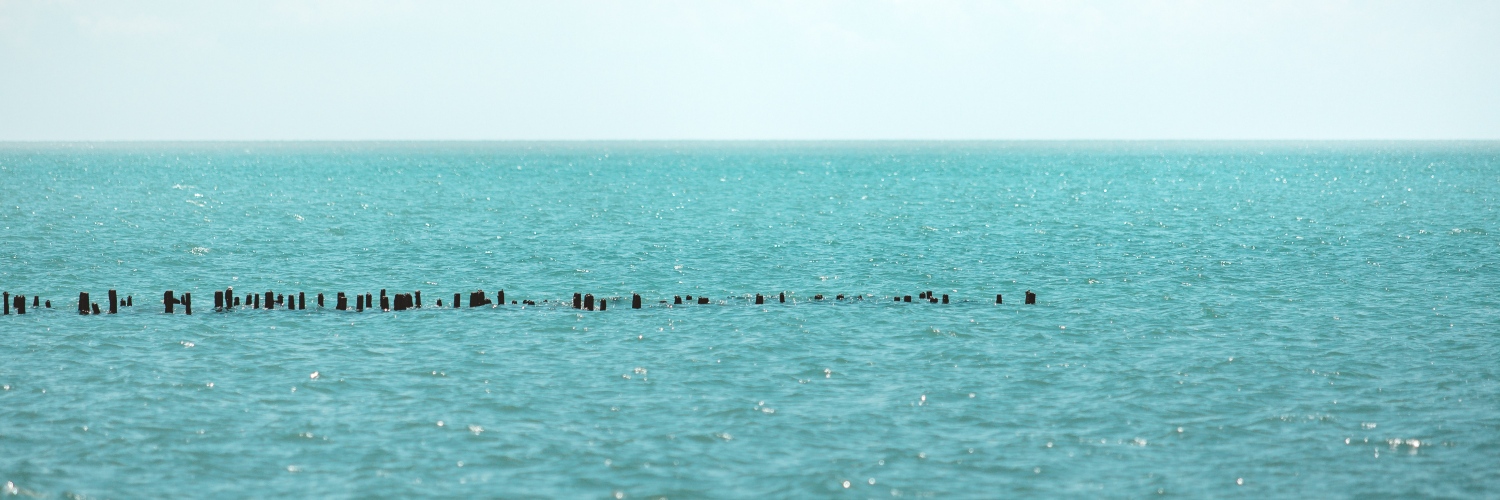Black Sea - an invaluable natural resource
The Black Sea is the most important transport artery. Through it it is possible to contact the world's maritime countries, Central Europe (by the river Dua) and Russia (by the Volga-level). The recreational use of the Black Sea coastal waters is especially important. There are many world-famous resorts along the coast. Within Georgia, rich, vegetated mountains are located near the seaside resort. They create a beautiful landscape.
The Black Sea does not have a difficult outline, so it is convenient for sailing. The Black Sea is located in between North Lattitude 41 and 46 degrees, its maximum length is 1150 km, maximum width - 580 km, maximum depth - 2211 km, length of the coastline - 3400 km. 310 km belongs to to the coast of Georgia. The Black Sea is particularly comfortable within the Georgian coastline. The salinity of the water does not exceed 0.2-0.3%, which is several times less than the similar rate in its central and southern parts. The transparency of the water is not high (6-8 m), although its summer temperature (+ 24 + 26°) is the most acceptable in terms of recreation and balneology. The speed of the coastal current, which does not exceed 1 km / h, is also comfortable.
The world of marine plants and animals is also diverse. It is distinguished by the species abundance of plankton and animals. About 200 species of fish live here, almost 1/5 of which are freshwater. 30 among them are valuable from a commercial point of view. Such fish are: European anchovy, Sprattus, The Black Sea sprat, Herrings and Gobiidae. The largest fish of the Black Sea with its size - the beluga is a member of one of the seven families of Black Sea sturgeons.
The Black Sea never freezes within Georgian borders, which we can not say about its northern part. Due to this, Georgian ports are convenient and operate all year round.
The recreational season on the Black Sea coast lasts for several months. There are many famous resorts (Batumi, Kobuleti, Kindghi, Gagra, etc.) and a beach of international standard (Kvariati, Shekvetili, Ureki). Near the seaside resorts are mountains covered with abundant vegetation, which increases their aesthetic and recreational importance.
The Black Sea has the greatest impact on the formation of the Georgian climate - especially the distribution of precipitation and air temperature in the surrounding areas. Breezes (winds of daily frequency) blow even at a distance of 100-120 km from the Black Sea coast.

History of Black Sea
Tectonic processes in Asia Minor (related to the movement and deformation of the Earth's crust) have separated the Marmara, Azov, Aral, Black, and Caspian Seas from the ocean. In the following period, the Black Sea was part of the desalinated lakes-seas. The sea was gradually decreasing while the salinity was increasing. Within it, 8 million years ago, the Pontus Sea was formed, which included the Black and Caspian Seas (the mountains of the Caucasus and Crimea at that time were islands). The Black and Caspian Seas separated 1 million years ago. The Caspian Sea remained fresh, while the Black Sea merged several times and separated from the Mediterranean Sea. They finally merged 8,000 years ago, when the Bosphorus Strait was formed. The influx of salt water from the Mediterranean Sea has killed many living organisms. It was the decomposition of their waste that created the hydrogen sulfide reserves in the Black Sea.
Name history
Although the water in the Black Sea is not black, since ancient times, people in different countries have called it "black". It is not known exactly who, when and why named it, or why this name was so widely accepted. There are several versions regarding this matter:
According to one version, the name was given to it by the ancient Greeks. They called the Black Sea - Pontus Axenus (Greek: Πόντος Ἄξενος), which means "inhospitable sea", dark or black sea. Supposedly, this name was earned by the sea because it was difficult to sail on. Later, after its coast was explored by the Greeks and the surrounding areas were colonized, it was renamed to Pontus Euxinus (Greek: Πόντος Εὔξενος, "hospitable sea").
According to the second version, the sea was called "Black" by the Turks when they encountered great resistance from the locals during the conquest of its coast. They called the sea "Karadeniz", which means black, inhospitable.
According to hydrologists, the sea is "black" because any metal object that enters the deep waters of the sea is covered with black sediment. The reason for this is that below 200 m, the water contains a large amount of hydrogen sulfide and when in contact with the metal, it causes its corrosion. Today, the margin of hydrogen sulfide runs is 150-200 m. deep. But, it is possible that in the distant past, the bacteria that produced this substance were also present in the upper layers of the water, because as the ancient sailors said, when swimming in the Black Sea, their vessels were covered with black membrane and it looked as if there was black water in the sea.

Interesting facts about the Black Sea:
- The most dangerous fish that lives in the Black Sea is the poisonous sea dragon, the bite of which is not only painful, but sometimes it’s deadly;
- The Black Sea has the only large peninsula - Crimea;
- Black Sea mammals include: guinea pig, seal, and two species of dolphin;
- The mountains that surround the Black Sea are constantly rising, just like the sea itself. The difference is that over the course of a century, mountains rise by only a few centimeters, while the sea rises by 20-25 centimeters over the same time;
- The Black Sea hardly freezes, with the exception of the extreme north-eastern parts, which are covered with a thin layer of ice once a year;
- Spiny dogfish – is the only shark that inhabits the Black Sea. However, it is almost impossible to notice it near the coast;
- Because below 150-200 m. sea water is saturated with hydrogen sulfide, the sea is lifeless;
- Of the Black Sea plankton, one unusual species of plankton is noteworthy – the so called “night light” that has the ability to phosphorize and because of this, in August, sometimes, the Black Sea glows;
- There are two circular flows of water In the Black Sea, with the length of 350-400 km. These circles, in honor of their discoverer N. Knipovich, were called "Knipovich’s glasses".